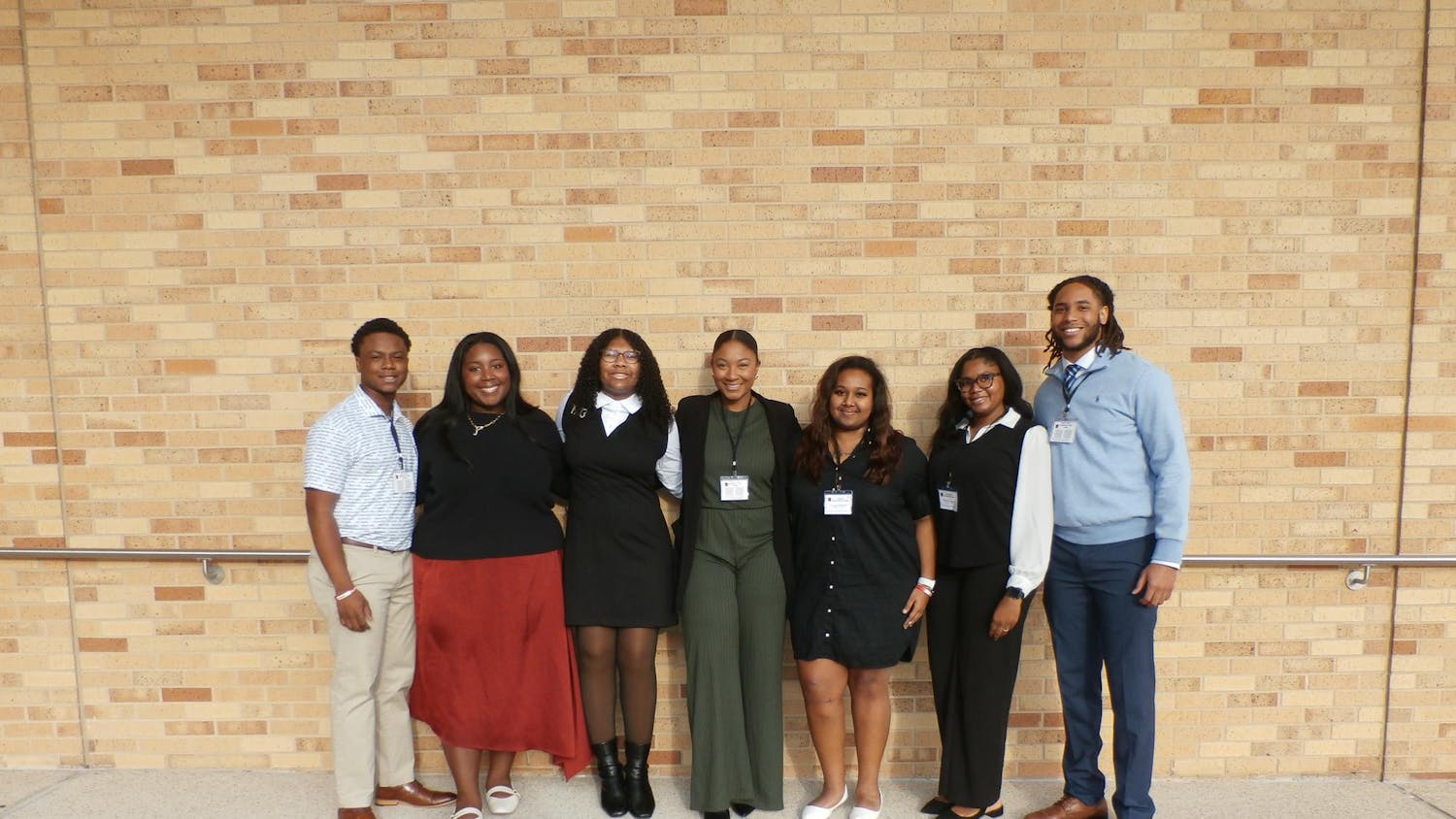Every major at Auburn University can prepare someone for a successful and rewarding career, but only one can teach someone to fly the Goodyear blimp.
The professional flight management degree prepares students for careers in every variety of flight.
"With the professional flight management degree, students can come to Auburn to obtain a 4-year accredited business degree and also learn how to fly," said Joe Hanna, aviation and supply chain management department chairman and professor. "Upon graduation, students typically have their private, instrument, commercial and multi-engine pilot licenses."
Unfortunately for students hoping to release their inner Maverick, Goose or Iceman as soon as possible, the professional flight management program begins on the ground.
"You know how physics has a lecture and a lab associated with it? Well it's the same sort of idea with flight," said Dale Watson, director of aviation education.
All aspiring pilots begin their education in ground school, where the fundamental concepts of flight are taught. Upon mastering the basics of ground school, students can expect to fly up to three or four times a week.
"From the very first lesson you have the controls in your hands while the instructors are there to guide you," Watson said. "It's a very hands-on start."
Watson said the program for the first level of pilot certification, private pilot, is designed to take two semesters, but most students receive their certification in a semester and a half. After receiving their initial certification, professional flight management students pursue certifications in instrument reading (so they can fly in less than optimal conditions), commercial flight, multi-engine flight and flight instruction.
The professional flight courses are open to all majors. There are no prerequisites for the courses, except for ground school.
"Students in many different majors either pursue a minor in professional flight or simply take a couple of our courses and learn how to fly," Hanna said. "Many of these students simply want to get their private pilot license or obtain an instrument rating so they can fly as a hobby."
Watson said a background in flight is "a big distinction" on a resume.
"It's no small deal," Watson said. "(A background in flight) shows a clearly demonstrated ability to learn to do a very complicated thing and succeed at it."
Watson said students in any major will benefit from flight education as there are pilot jobs available throughout society. "From a business standpoint, flying smaller aircraft from smaller airfields offers time savings and efficiency that is not available through commercial air travel," Watson said. "You can visit more business contacts in less time in more places and still be home at night with your family."
Of course, the majority of students who receive flight education from Auburn will enter the professional piloting world.
"Upon graduation, students of the professional flight management program have the capability to become pilots for regional commercial airlines, fly for freight carriers, or pursue a career in business aviation," Hanna said. "Auburn professional flight management graduates currently fly for FedEx, JetBlue, Delta and even serve as pilot of the Goodyear blimp."
That's right: the Goodyear blimp.
"The reason you see (the blimp) on our campus more than others is Marty Chandler is an alumni and he comes around every chance he gets," Watson said. "He is one of many outstanding program alumni who serve on our department advisory board."
Chandler has many alumni to compete with for the distinction of serving on the advisory board. The Auburn University flight program was established in the late 1930's when the University started a training program to teach civilians to fly in World War II.
The professional flight management program is now the second oldest in the country and well-respected within the aviation community.
"It comes from a combination of long heritage and a history of successful graduates," Watson said. "There are lots of Auburn graduates doing good things in aerospace which creates a positive reputation."
Students who want to become part of Auburn's storied aviation program will have to pay the price, not only with their textbook, but with their checkbook. Airplanes cost between $130-$200 to rent per hour and Watson estimated students could spend $8,000-$9,000 on a private pilot certification, in addition to the University's class enrollment fee.
For Watson, the price of the course is worth it, considering the education the aspiring pilot will receive.
"There are other places to learn to fly," Watson said. "You can become a pilot at your local airport. But the University aviation program provides a more solid foundation and a deeper comprehension of flight education."
But whatever the price, Watson said flying an airplane is an experience unlike any other.
"The first solo flight is a nervous experience for all concerned," Watson said. "But it is a day the new pilot will remember and cherish for the rest of their life."
Do you like this story? The Plainsman doesn't accept money from tuition or student fees, and we don't charge a subscription fee. But you can donate to support The Plainsman.




